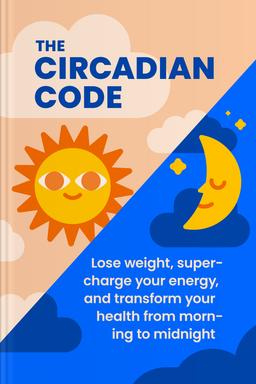What is The Circadian Code about?
This book explores the science of circadian rhythms, revealing how aligning daily habits with the natural cycles of light and darkness can enhance weight loss, energy levels, and overall health. Dr. Panda provides practical advice on optimizing meal timing, sleep patterns, and lifestyle choices to harness the power of our body's internal clock for transformative wellness.
Who should read The Circadian Code
- Health enthusiasts seeking to optimize their wellness.
- Individuals struggling with weight management and energy levels.
- Readers interested in sleep science and circadian rhythms.
What is The XX Brain about?
This book explores the unique ways women's brains function, emphasizing the importance of gender-specific research in understanding cognitive health. It delves into the science behind dementia prevention, particularly Alzheimer's disease, offering tools and strategies for women to enhance their brain health. With a blend of scientific insights and practical advice, it empowers readers to take proactive steps toward maintaining cognitive vitality throughout their lives.
Who should read The XX Brain
- Women seeking to enhance their cognitive health.
- Health professionals interested in women's brain health.
- Readers concerned about Alzheimer's prevention strategies.
What is In the FLO about?
This insightful guide explores the power of hormones and their impact on women's health and wellness. It offers practical strategies to align daily activities, nutrition, and lifestyle with hormonal cycles, enabling women to harness their natural rhythms for improved energy, mood, and productivity. By embracing this holistic approach, readers learn to optimize their health and empower themselves, fostering a deeper understanding of their bodies and unlocking their full potential.
Who should read In the FLO
- Women seeking to balance their hormones.
- Health enthusiasts interested in hormonal health.
- Readers looking for personal development strategies.
What is Moody Bitches about?
This insightful exploration delves into the complexities of women's mental health, examining how societal pressures, hormonal changes, and medications affect mood and well-being. It critiques the over-medication of women and highlights the importance of holistic approaches to mental health. The book offers valuable advice on addressing emotional challenges, enhancing relationships, and promoting better sleep, ultimately empowering readers to understand their feelings and reclaim their lives.
Who should read Moody Bitches
- Women seeking to understand their emotional health.
- Readers interested in mental health and wellness.
- Individuals curious about the impact of medication.



